#A levels
Explore tagged Tumblr posts
Text
Jul' 25: How to Survive A Levels + Gratitude.
Prologue These figures are drawn from publicly available data and reliable sources. For readers who are curious or would like a deeper breakdown, feel free to contact the author directly for more information. On a side note, it’s kind of refreshing not having to cite sources like I would in a research paper when I’m writing for myself, haha. The Singapore-Cambridge GCE Advanced Level, or more commonly known as the A-Levels is widely regarded as one of the most rigorous and challenging pre-university examinations in the world. It stands alongside other famously demanding national exams such as Korea’s 수능 (Suneung), China’s 高考 (GaoKao), and India’s IIT-JEE (Indian Institute of Technology Joint Entrance Examination).
For many students, the A-Levels represent a true academic marathon, requiring deep conceptual understanding, discipline, and mental resilience. The exam is typically administered when a candidate is in Junior College (JC), typically after two years of study. It follows a unique system of subject levels: H1 (Higher 1), H2 (Higher 2), and H3 (Higher 3). H1 subjects are lighter in content and focus on breadth, while H2 subjects dive deeper into the subject matter and form the academic core. H3 subjects are optional and meant for students who want to explore content at a university level. Students generally take three H2 subjects, one H1 contrasting subject, along with General Paper, Project Work, and Mother Tongue Language (if not previously exempted). Lets break it down further for my foreign readers. Singapore sees an average birth cohort of around 36,000 to 38,000 each year. While students can pursue a variety of educational pathways, the most socially desirable—and often the most competitive—is the Junior College (JC) route leading to university. Each year, about 11,000 students sit for the Singapore-Cambridge GCE A-Level examinations. In 2024, approximately 10,889 candidates took the exam, with a strong showing—94% achieved at least three H2 passes along with a pass in General Paper or Project Work. Of those who qualify, roughly 80% of A-Level and IB graduates progress to local autonomous universities. In that same year, about 18,500 students from JC, Integrated Programme (IP), IB, and polytechnic backgrounds were offered places at one of Singapore’s six public universities.
Here’s how the undergraduate spots were distributed at Singapore's 6 Autonomous Universities (approximation):
National University of Singapore (NUS): ~7,308 places
Nanyang Technological University (NTU): ~6,501 places
Singapore Management University (SMU): ~2,380 places
Singapore University of Technology and Design (SUTD): ~494 places
Singapore Institute of Technology (SIT): ~3,381 places
Singapore University of Social Sciences (SUSS): ~1,117 places
For the more observant, you may have heard of the term “Big 3,” which refers to the three oldest and most reputable universities in Singapore: National University of Singapore (NUS), Nanyang Technological University (NTU), and Singapore Management University (SMU). This post won’t dive into the debate on prestige, morality, or ethics behind the university admissions process. Instead, it aims to serve as an informative guide: for students, a breakdown of what it takes to get there; and for parents, a clearer picture of how to best support your child’s journey toward these top institutions. Now back to the numbers.
For those who have been keeping track: out of an annual birth cohort of around 38,000 students, approximately 11,000 sit for the A-Level examinations each year. Of those, roughly 40% secure a spot in one of the Big 3 universities. If you’re wondering why the numbers don’t add up exactly, it’s because the cohort includes international students, IB students, mature students, and others beyond the local A-Level candidates. That means approximately 11.6% of students make it to the Big 3 universities, give or take. To put it simply, for those with large friend groups, that’s roughly 1 in every 10 who achieve this milestone. Absolutely staggering.
Why all the focus on the “Big 3”? Truthfully, it’s a cultural legacy that’s been embedded since Singapore’s early days. While SMU is a relatively recent addition to the trio, these three universities have consistently been regarded by Singaporeans as the pinnacle of higher education. They are seen as institutions that produce the nation’s best and brightest.
To give you some perspective: among the 18 Cabinet Ministers serving under The Honourable Prime Minister Lawrence Wong, if we exclude the 8 who studied overseas, 9 out of the remaining 10 hold undergraduate degrees from NUS. The sole exception to this is Mr Masagos Zulkifli, who earned his undergraduate degree from NTU and later completed a master's at NUS. This prestige is also reflected in employment statistics, with roughly 90% of graduates from these universities able to secure employment within 6 months of graduation, in contrast to around 50% from private institutions. While I personally believe merit goes beyond just university names, the Big 3 have, for better or worse, become deeply ingrained as a benchmark of success in Singapore’s cultural and academic landscape.
This is why the A-Levels often feel like a "do or die" moment for many budding academic achievers — you either make it, or you don’t. Take it from someone who once scored 2.5 / 90 in a major JC exam. Life can be brutal. And while it’s perfectly valid to explore different pathways, switching to polytechnic or ITE after a year in JC can feel like a significant detour. Some may see it as a practical reset; others may see it as confronting a tough truth: that the traditional academic route might not be the right fit. My pride did not allow me to admit defeat. Instead, I reflected and came up with 6 core principles that helped me not just survive, but truly thrive in this demanding environment. For those of you aspiring to be future Big 3 graduates — take these principles to heart. Reflect on them, apply them consistently, and I promise: you won’t just make it through JC… you’ll thrive and come out stronger, sharper, and more resilient than ever. I, for one, am not against academic excellence—far from it. I strongly encourage it. Personally, I aspire to pursue a master’s degree and, eventually, a PhD in my own time. That said, I am neither elitist nor dismissive of those who choose a different path. The purpose of this blog and this post is to support and uplift those who are ready to take on the journey, while also encouraging those who may have felt left behind. Everyone deserves the opportunity to grow in their own way. Lets get right into the 6 Principles: 1. Mindset Reset
Or to quote the younger generation — Lock in. By now, through my long-winded storytelling, you’ve probably realised that only 30–40% of each cohort take the A-Levels, and from there, only the top ~10% make it to the Big 3. Singapore’s education system unfortunately operates like a finely tuned filter, sifting students at every stage. If you’ve made it to JC or chosen to take the A-Levels, you should automatically assume you’re entering a league of the nation’s brightest.
Most readers are likely familiar with Singapore’s reputation in STEM. According to recent OECD rankings, Singapore consistently tops the charts in science, mathematics, and reading. This means that you, the aspiring student, are not just competing locally — you’re now in the arena with some of the best students in the world.
You’ll soon realise that you’re no longer a big fish in a small pond. You’re a big fish in an ocean where everyone is smart, capable, and locked in. And this is where I ask you the question: Do you want better? If your answer to that question is “yes,” then you’ll need to make a serious commitment for two full years. Forget the Reddit posts romanticising the idea of always making time for yourself, friends, and relaxation. The reality is this: JC life is often more intense than University, and academic performance is closely tied to the number of hours you dedicate to learning. That doesn’t mean you can’t take short breaks or have moments of indulgence but understand this clearly: Studying will need to be your constant.
2. Sacrifices
In line with my first point—sacrifices must be made.
What kind of sacrifices, you might ask? Time, friendships, relationships, and sometimes even your own comfort. Everyone is given the same 24 hours a day. Let’s break it down: 10 hours go to school and classes, 6 for sleep, 2 for meals and travel—that leaves you with 6 hours (or less). How you use those hours is entirely up to you.
When I first scored that ridiculous 2.5 points, make no mistake—I was using all of those 6 hours (and probably more) on “me time.”
In contrast, high-performing students regularly go beyond the 100%. They stretch those hours, pushing into the 110%, buried in notes, assignments, and revision. While there are always exceptions, the truth is simple: time invested and academic results are almost always strongly correlated.
It goes without saying that I do not recommend sacrificing health. Health always comes first.
There’s no point burning out or falling sick just to chase grades. A well-rested mind learns faster and remembers better. Trust me... those all-nighters, skipped meals, and energy drink binges don’t pay off in the long run. Pace yourself. Sleep. Eat properly. Exercise if you can. You're not just preparing for an exam; you're preparing to take on life, and life needs you at your best, not broken.
3. Choose your Friends Wisely This might come across as a little snobbish—but it’s true: you are the product of the people you surround yourself with. In a time as critical as these two years, something as simple as choosing the right friends can have an outsized influence on the trajectory of your life. The conversations you have, the habits you pick up, the way you view ambition and success—it all gets shaped by the company you keep.
I personally view the ages between 16 to 18 as the most formative years of one’s young adult life. Your mindset, ambitions, and overall attitude toward life are often cemented during this critical window. While most people see friends as simply an extension of their life, at this stage—when you're spending at least 50% of your daily hours with them—their influence becomes far more significant.
Think of it this way: if we were to run a hypothetical experiment with a pair of twins attending the same school, but placed in two different social circles—one surrounded by studious peers, the other by carefree, playful friends—who do you think is more likely to succeed? The answer may seem obvious, but it highlights just how powerful your environment can be.
In a way, this tip calls for a bit of self-awareness and perception when it comes to the friends you choose. While it's important to surround yourself with the right people, the good old gut feeling rule always applies. If you ever feel that you're spending too much time with friends to the point where your studies begin to suffer, trust that instinct. At the end of the day, you’re the only one who has to face the consequences—so make sure your priorities stay in check. 4. Getting into a Rhythm
Think of studying like an exercise: many, many sets of the same movement repeated over and over again. It’s not always glamorous, and sometimes it’s downright exhausting—but that’s what builds discipline and mastery.
And that is the core of this principle: building and leading a disciplined life. You wake up at 6AM, attend lessons, study during breaks, go for your CCAs, study again, and head to bed. Repeat. Day in and day out, for two whole years. I understand how this might sound like you’ll have “no life,” but I can assure you these sacrifices will be worth it in the long run.
Most students I know follow structured schedules, allocating specific hours to Biology or Math, capping travel and dinner time, even setting precise sleep routines. Personally, I’ve never followed a rigid schedule. Instead, I operate on an internal rhythm; a quiet but firm discipline. I just know when something needs to be done, and I do it. It’s less about a timetable and more about cultivating the mindset to act when it counts. This approach also gives me flexibility to adjust when needed, without derailing the larger momentum. For those who need some academic direction, a good rule of thumb for daily revision is this: diversify your content. Don’t just drill one subject the whole day. Mix it up—rotate between your sciences, your humanities, and even your GP. This keeps your brain fresh and engaged. And if you’re really not feeling a particular topic, don’t force it. Switch it up. Always listen to your mind. Some progress in another subject is better than burning out on one. Overall progress > Slow Progress. 5. Compensation
I would like to address the most unfair part of studying: different aptitudes. To put it simply—some are smarter than others.
My message is to those on the "less academically inclined" like myself: We can do it. We can make up the difference. For every hour someone else spends, we might need 1.5 or even 2 hours. That’s just the reality. But that doesn’t mean we can’t succeed. It just means our journey is a little harder, a little longer, but no less possible.
It’s easy to feel disheartened when someone breezes through a topic you’ve been struggling with for days. But don’t compare yourself to them. Compare yourself to who you were last week, or yesterday. Our progress isn’t defined by others, but rather how much we’re willing to push, day after day.
Yes, you’ll get frustrated. Yes, you’ll have days where nothing makes sense. But if you stay consistent, if you put in that extra effort, it will click. And when it does, it’s one of the most satisfying feelings in the world, not just because you understood something, but because you earned it. 6. Consult the Right People
I’ve been extremely fortunate to cross paths with lecturers who were nothing short of amazing. Mentors who genuinely cared and went above and beyond their responsibilities. That said, I’ve also encountered those who, for reasons beyond their control, had seemingly given up on their students.
I won’t name names, but my point is this: seek out and surround yourself with the right mentors. Appreciate the ones who show up for you. These are the people you should ingratiate yourself with: learn from them, speak to them, and let them guide you forward.
Sometimes, all it takes is one good conversation with the right person to unlock something in you: a new way to understand a topic, a shift in mindset, or simply the motivation to keep going. Do not underestimate the value of a teacher who genuinely believes in you, even when you don’t quite believe in yourself.
But here’s the catch: you must take initiative. Don’t wait for help to fall on your lap. Raise your hand, stay after class, book consults, send emails. Show that you care. You’ll be surprised how many teachers respond when they see effort. If you don’t find that support immediately, don’t be discouraged. Keep looking. Sometimes the best mentors aren’t always the most obvious ones: they might be a dean, a lecturer, or even a friend who’s just one step ahead of you.
At the end of the day, JC is not a journey meant to be walked alone. You’re allowed to ask for help. You’re allowed to seek guidance. And you absolutely deserve teachers who will walk alongside you not just as instructors, but as pillars in your toughest moments.
In summary, these are the 6 Principles that have served me well—principles that helped a once-forgotten student, who seriously considered transferring to a Polytechnic, eventually study at NUS. I’ll release a full guide on how to survive university life in the future—but that’s a story for another day.
On a similar note, I want to take this opportunity to express my deepest thanks to the four biggest mentors who stood by me during my JC journey:
Mr Desmond Lee – then Dean and HOD of Mathematics
Mr Salahuddin Ibrahim – my Biology teacher, and now a lead teacher at the Academy of Teachers for MOE
Mr David Hoe – my Economics tutor, now a Member of Parliament
Mr Jowell Yong – my Economics tutor for two years
Be it a passing conversation, the countless hours of consultations, an arm around the shoulder, or a timely pep talk when I was at my lowest… I felt it. I understood it. And most importantly, I reflected on it. Back then, I could see why no teacher would want to come near me with a 10-foot pole. But none of you gave up on me, and for that, you have my eternal gratitude.
Just recently, I returned to visit my old school and met one of you again—still teaching. When we shook hands and had a brief chat about my future career path, I could feel the pride radiating from you. That short interaction made every bit of effort I’d put in feel truly worth it. And I think you’d agree: it was worth it for both of us.
I’ll definitely write a deeper, more detailed post on my experiences with each of you in time to come. But for now, I’ll leave it at this.
To the future graduates reading this: Good luck. More importantly, keep inspiring yourself from within. Keep these 6 commandments in mind and gentlemen I promise you: We will be successful. You got this.
4 notes
·
View notes
Photo
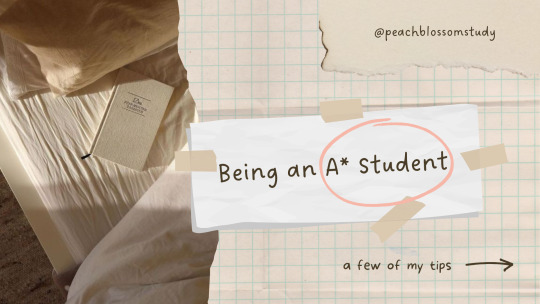
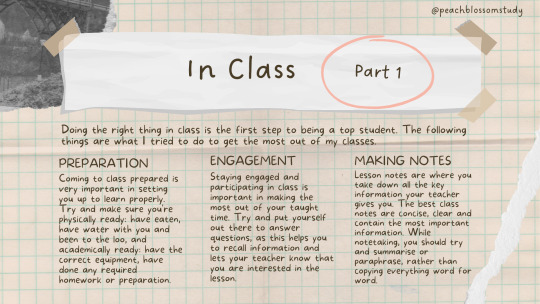
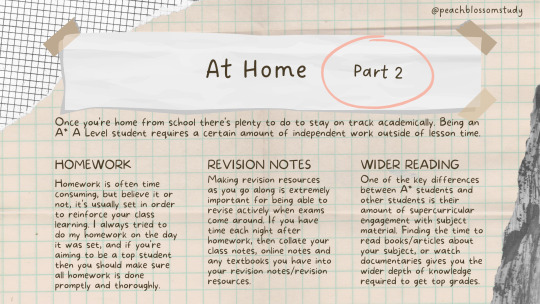
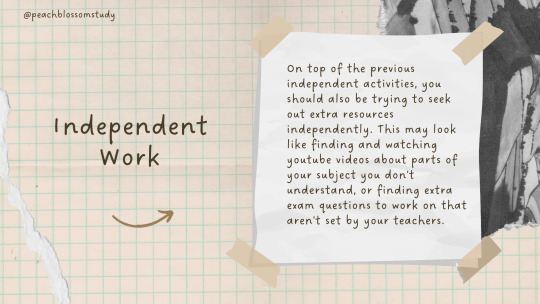
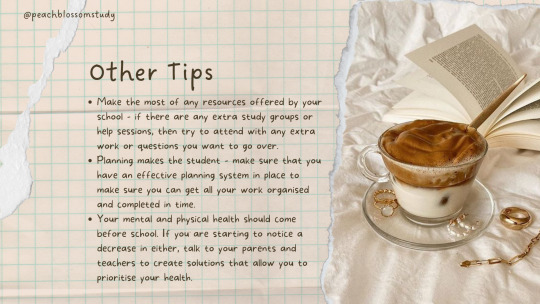
// tips for being an a* student
by @peachblossomstudy
#peachblossomstudy#studying#studyblr#study#study tips#studyspo#a* student tips#student#a levels#a level studyblr#uk studyblr#myhoneststudyblr#bulletnotestudies#problematicprocrastinator#heyzainab#heysaher
2K notes
·
View notes
Text
Update : guys I flopped a levels so much I hate aqa so much I hate chemistry and biology
1 note
·
View note
Text
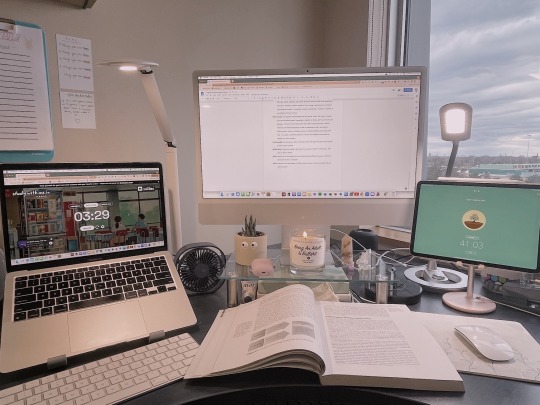
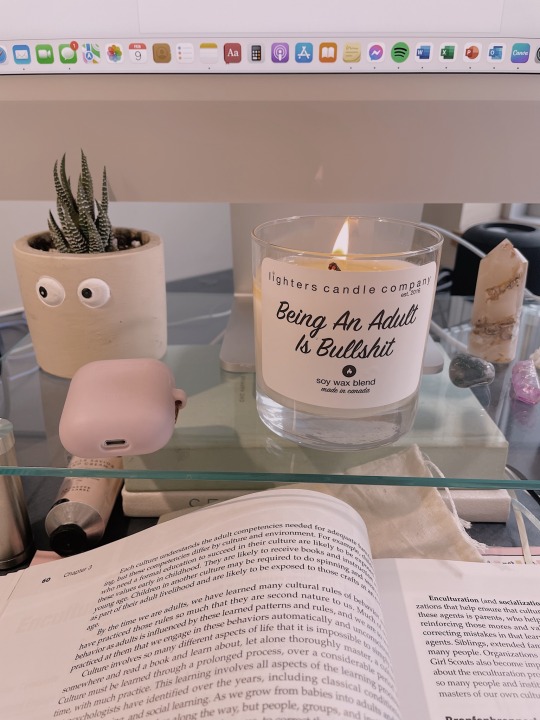
02/09/23 - catch-up day
my only two classes of the day were cancelled so i took advantage of my “day off” to get caught up on assignments and drink an excessive amount of coffee.
#sweetpea studies#tags#queued#studyblr#uniblr#academics#studystudystudy#my desk#study with me#student life#a levels#romantic academia#productivity#100 days of productivity#study blog#study hard#study aesthetic#light academia#studyspo#college#university
742 notes
·
View notes
Text
Hey there!
Welcome to UK school confessions!
Want to vent about exams? Share a dumb story about you in year 7? Share some crazy thing that happened while you were at primary school? Go ahead!
You may also use this blog to ask for advice regarding subjects you may be struggling with or just exams and revision strategies in general! I will also add my own advice in asks that request help in subjects I know about
GCSE revision resources I used that helped:
Educake (if your school has it) - all subjects
Mathswatch - maths
Seneca - all subjects
myshakespeare.com - English lit (includes annotations)
School textbooks - any subject (get permission from teachers first)
Mod goes by V, age 16
Rules:
Nothing too NSFW please. Any overly graphic confessions will not be posted
Please do not give away school names, specific locations or names of staff or students. Please refer to staff using initials such as 'Mrs B.' Or under a false name if they are a student
Exams are tough! But please don't rely on this as a source of advice if you are feeling stressed or overwhelmed. Talk to your school's Student Support team, your GP or a service such as Childline if you are struggling to cope, there are systems in place to help you
As much as you may dislike someone else's confession or take, please refrain from starting discourse. Casual debates are fine, but please do not threaten violence or start fighting with other Anons
That's it! Confess away!
Tag list:
#Revision advise
#Exam advice
#gcse
#a level
#confession
Subjects will be added as asks are recieved about them
#gcse student#gcse#gcse 2025#gcse studyblr#studyblr#confessions#confession#confessions blog#confession blog#a levels#gcse maths#gcse science#gcse english#gimmick blog#intro post#revision#gcse revision#gcses
1 note
·
View note
Text
I was taking a school final exam (like A-levels) in Math, which was held by a medieval-ish theatre group. First assignment was to make an equation from a very vague, long text. Guess I failed because I didn't have the right pen.
326 notes
·
View notes
Text
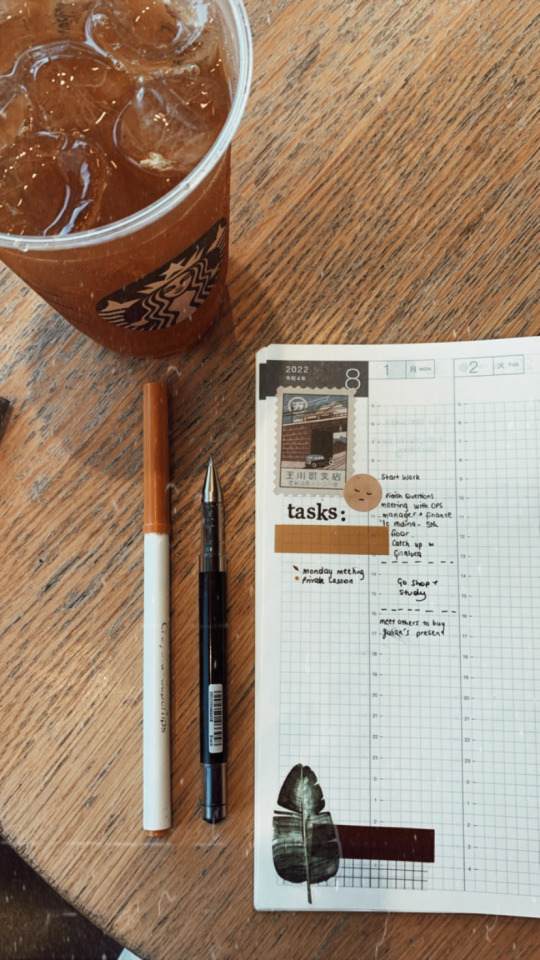
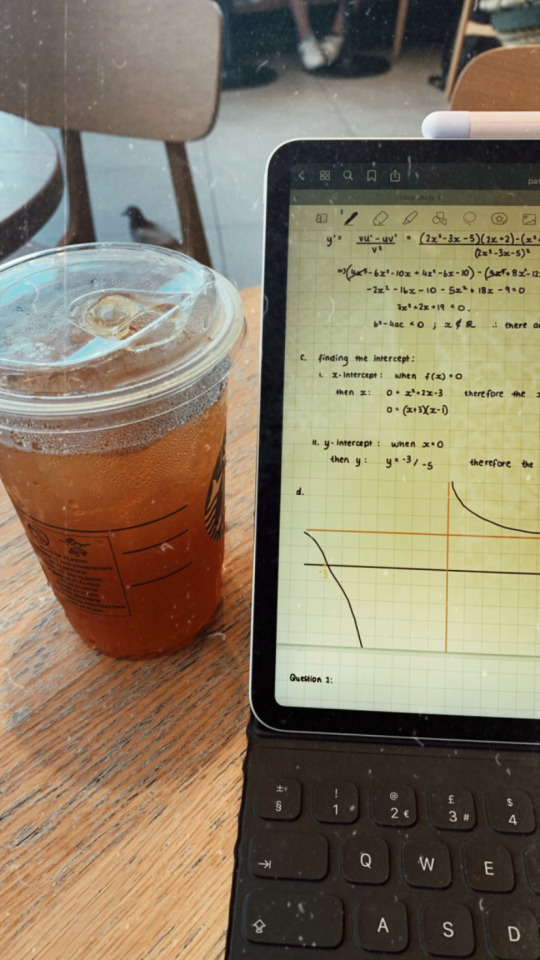
monday 1st august
new month new week. finally ill be saying goodbye to my a levels this month, only 30 days left :))))). working on some a level maths as well as a case study for my internship. busy month ahead, i wish all the best of luck for any upcoming work.
p.s. yes that is a pigeon who straight up came into the shop
#dark academia#dark academia aesthetic#study motivation#studyblr#studyspo#annprocrastinates#study notes#study aesthetic#studyinspo#summer#books#education#stationary#maths#sea#a levels#ipad#digital notes#hobonichi#summer studying#starbucks#tea#journaling#diary#scrapbook#planning#plannerspread
2K notes
·
View notes
Text
I went many years not realising that something was wrong with me.
Many years of thinking that how I feel and how I process things was normal. Everyone experiences similar things, is what I thought.
School was okay. I ended up with good grades in the end - A, A, B for A-levels.
But I didn’t realise that I was struggling to understand textbook language. I didn’t know that comprehension of that type of text could be a learning disability. I just thought I wasn’t good enough.
I never really did any work in class. I was actively involved in discussions. Always had an idea to share, and my teachers seemed to really enjoy those discussions. But putting them on paper was fucking hard.
And the research never really got any deeper than the ‘contents’ page and half of the ‘introduction’ of a book. I had piles and piles of books to look through, they all intrigued me. But they just sat there, in a pile, looking cute.
They sat there as the guilt (of not reading through them) weighed on me more as deadlines got closer.
If we had to take notes in class, I wasn’t able to focus. Notes were mandatory, as per my teachers’ expectations - that’s the only way they’d know whether we are concentrating or not. But, I would leave the classroom feeling like I didn’t learn anything that day, because it was all too fast.
Now I know why.
I knew I was smart (sometimes I truly believed that), and I knew I could understand everything that was communicated to me verbally. But the classroom setting just wasn’t right.
I never thought that I’d be one to have ADHD, or that disability they called dyslexia. It felt so foreign, so out of reach - I shouldn’t even consider it because I don’t need the help, is what I thought.
I needed that help.
I never thought I deserved extra time during exams - even though I never fucking finished my papers. No matter how fast I tried to get through the questions, I always had 3 or 4 or 5 pages left once the time was up.
I was actually never told about such things existing, I didn’t know what ‘accommodations’ were. Not until I saw a handful of classmates sitting in a separate room, taking the exams at a different time to us. But still, no one really talked about it.
I just wish that my school, one of the ‘best British schools in the country’, would take learning disabilities more seriously.
I wish they had taken the time to educate us about such things, instead of telling us off for the eyeliner or nail polish we wore.
Instead of giving us detention for wearing pants tighter than their liking.
Or the assemblies they forced us to sit through, where they would bring in alumni to talk about all the amazing things they had achieved since they left school.
If only I had been told about what learning disabilities were:
- I would have struggled less in GCSE.
- I wouldn’t have had those multiple breakdowns because I thought I was stupid.
- I wouldn’t have thought that I wasn’t good enough.
I was always so intrigued by learning new things. But the classroom setting just wasn’t right. The teachers never came to me to ask why I’m struggling, they came to me to tell me I wasn’t good enough.
My biology teacher said she’d be surprised if I get a C. Out loud. In front of the whole class. As she gave out our mock exam results.
I got an A in biology when the real exam came around. Because I studied my ass off. At home. In my own space.
She did nothing to help me.
My math teacher told the whole class that I got the lowest score in my mock exam. I wasn’t there, but my classmates told me. It was embarrassing. I fucking cried. But now that I look back, it’s because I couldn’t understand textbook language at the speed they wanted me to.
I got an A in that too, when the exam actually mattered.
I never really cared much for mock exams. They didn’t mean anything towards my final grades, or my future. I couldn’t care less and they didn’t deserve the stress I’d have to go through.
I just knew I would study for the real exams. I knew I could pull all-nighters and study better under pressure.
Now I know why.
I would wonder why it was so hard for me to keep up with deadlines. I would think that maybe I just don’t care enough. But I kind of did, because I enjoyed learning. I enjoyed discussing and sharing ideas.
But the school system just wasn’t right.
I look back and wonder what it would have been like if I got the extra help that I needed. If I knew I was dyslexic, maybe my English teacher wouldn’t always make me read out loud to the class “to help with my reading skills”.
That was torture for me and everyone else involved - (I think she enjoyed seeing students struggle though).
I remember I specifically went and asked her to stop making me read out loud. Because I felt ashamed of all the long pauses, when I couldn’t find the line I was on. Or for saying the wrong thing, or pronouncing the words wrong. I was ashamed that everyone had to listen to me struggle, because I thought I was wasting their time.
She asked me to read to the class, that same day.
#adhd#living with adhd#adhd problems#learning disability#dyslexia#gcse exams#a levels#education#reading comprehension#adhd things#personal#adhd post#actually did#adhd feels
188 notes
·
View notes
Text


27/100
Did 3 hours of English today, and somehow my brain isn’t mush? I also finished a book I really enjoyed, so I think I balanced my day quite well 😊
#study#studyblr#studying#academia#a levels#100 days of productivity#100dop#aesthetic#student#notes#study notes#english#college
305 notes
·
View notes
Text
4/01/23 • 100 days of productivity - 45/100
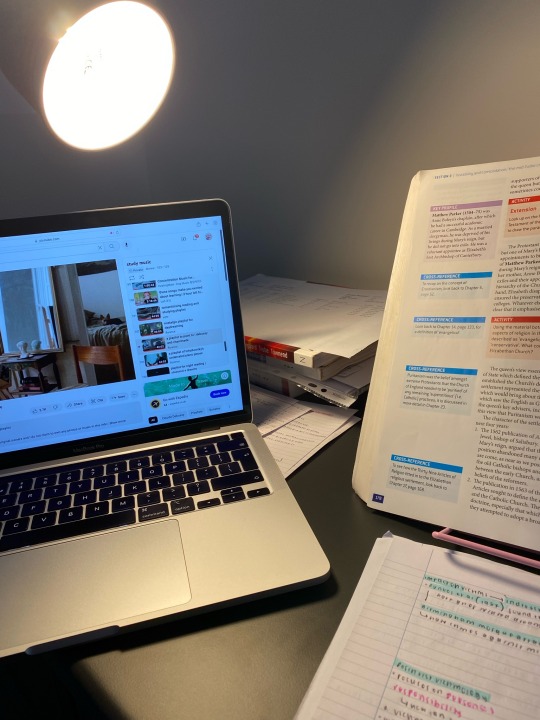

i am finally in my academic comeback era.
#studyblr#study#year13#productivity#study movitation#100 days of productivity#100dop#studybreak#study aesthetic#study space#study hard#studystudystudy#studyspo#studyblr community#a levels#mock exams#exam stress#exam study#study marathon#studyspiration
212 notes
·
View notes
Text

Some study notes on the heart…. 🧪
#studyblr#studyspo#study aes#stemblr#bioblr#a level biology#biologyblr#a levels#gatherstudies#gatherbeingstudious
176 notes
·
View notes
Text
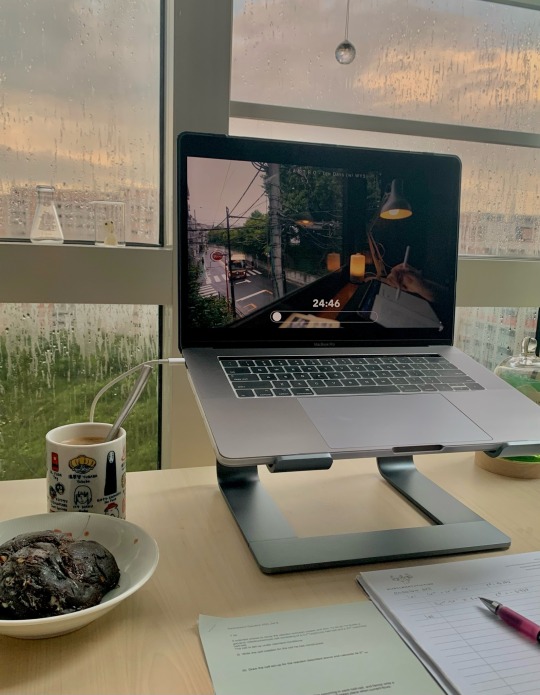

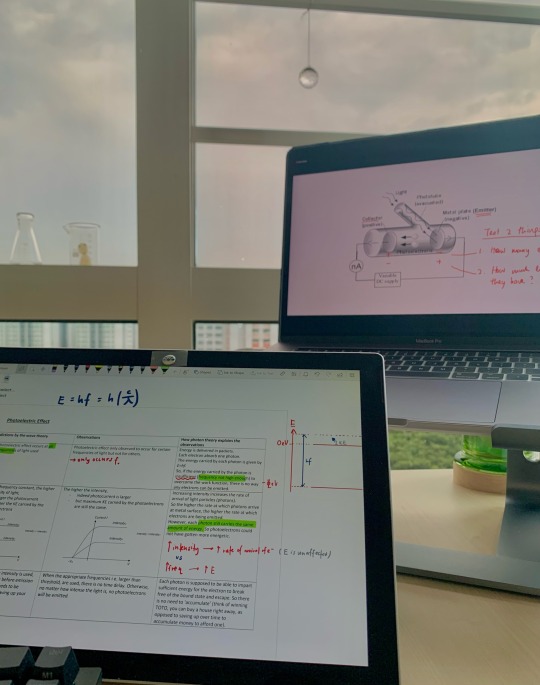
020622
waking up to rain has got to be one of the most healing things ever. a sheet of clouds in the sky and soft light shining on my desk? yes.
studied along with a study with me youtube video and did a couple of electrochem and quantum physics ⚛️⚗️
#also check out my mini beaker and conical flask hehe#study#academia#study motivation#productivity#studyblr#studyspo#a levels#academic#academic sb#study blog#gce a levels#study aesthetic#motivation#gce#deskpo#mine
1K notes
·
View notes
Text
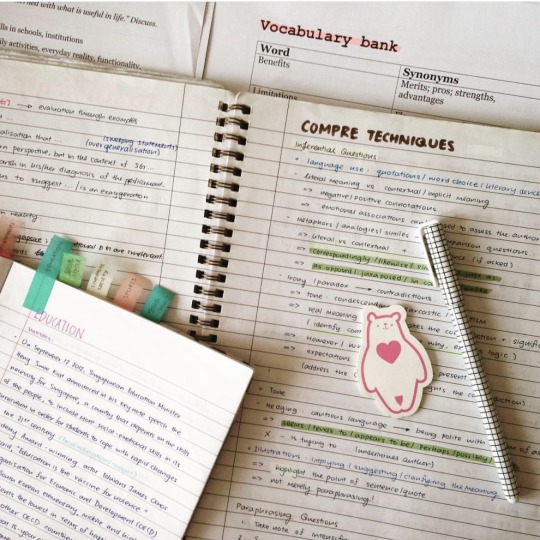
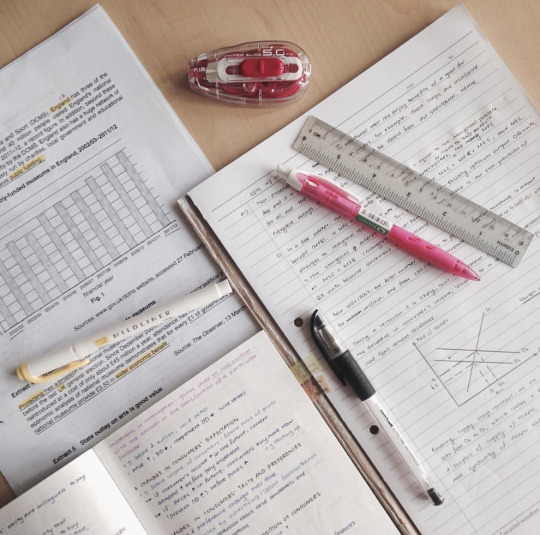
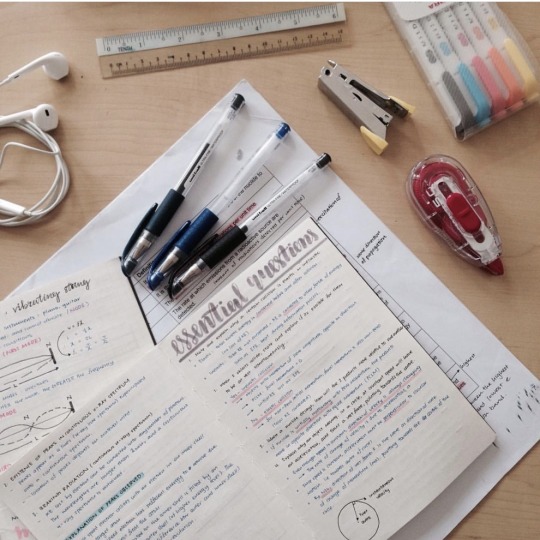
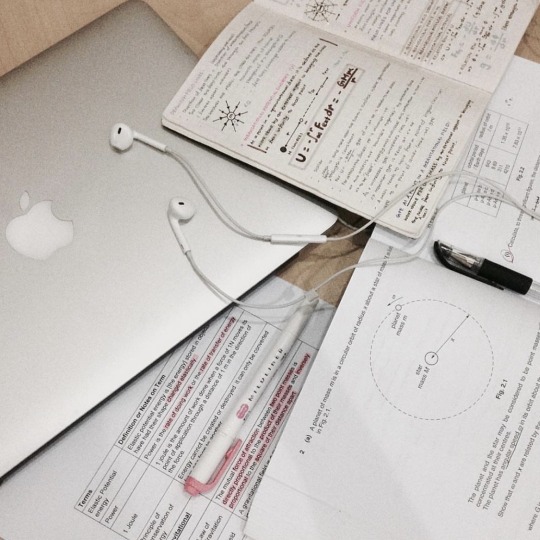
Old study notes from 2016 (wow… almost 7 years ago)
The lowest point of my life when I was studying for the GCE A Level examinations in Singapore. I joke that’s it my depression era (coming from an Asian family who don’t prioritize mental health) but looking back it was seriously frightening.
Dug these old photos because back then I didn’t score the best but I made it to university. Didn’t graduate at the top of my cohort but I found a great job. People always say that you’ll find a way in life and I never quite believed them but after 7 years, I do now.
YOU WILL FIND YOUR WAY IN LIFE EVENTUALLY.
Because I did! Sorta. No one can tell you how to live your life except yourself, not even your parents or your teachers. Live your best life and listen to your heart because eventually, everything will work out ♥️
#studyblr#study notes#studying#a levels#o levels#because I can’t believe my parents still try to put me down for things that happened 7 years ago#study inspiration#study#study spo
174 notes
·
View notes
Text
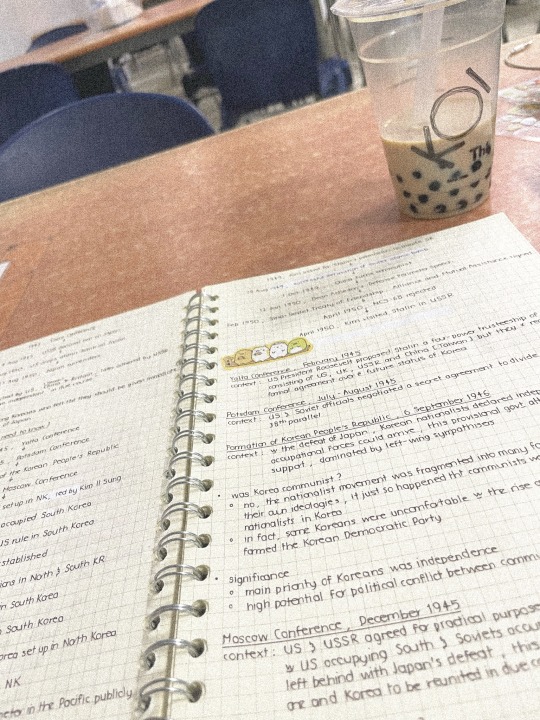

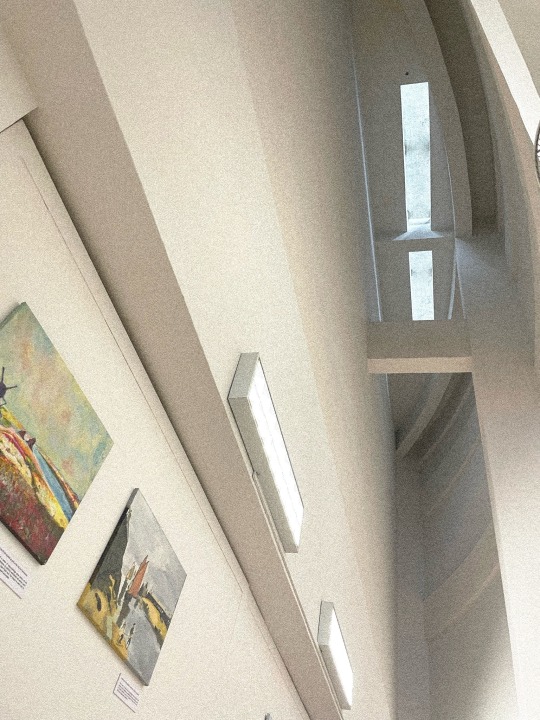
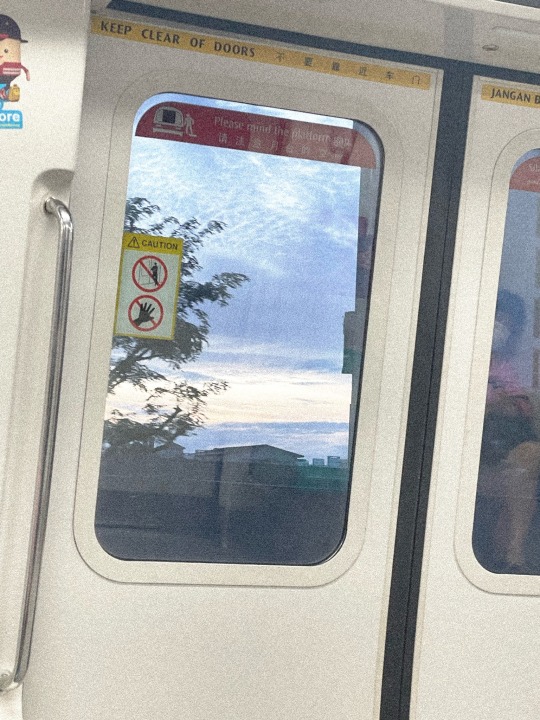
[ 12.09.22 ]
went back to sch for a consultation and also to study today since im getting sick of studying at homee
H2 History Korean War 2nd round of revision
H2 Econs Basic Economic WS Scarcity, Choice done
H1 Literature Saint Joan essay done
After revising Korean War for the 2nd time, I realised i retained the historical significance and dates more easily, ig it’s true that reviewing content regularly resets the Lorenz curve of forgetting
#studyblr#a levels#academia#study motivation#studyspo#studywithme#study inspiration#studygram#study night#study notes
264 notes
·
View notes
Text
just realised positive thoughts & highlighters won't get me into university. what the fuck man
#absolutely furious#/lh#/j#mostly#dark academia#dark acadamia aesthetic#romantic academia#studyblr#dark academic#light academia#classical literature#shitpost#studyspo#da#academic#classics#biology#environmental science#alevel#a levels#classics alevel#biology alevel#school#studying#study
2K notes
·
View notes